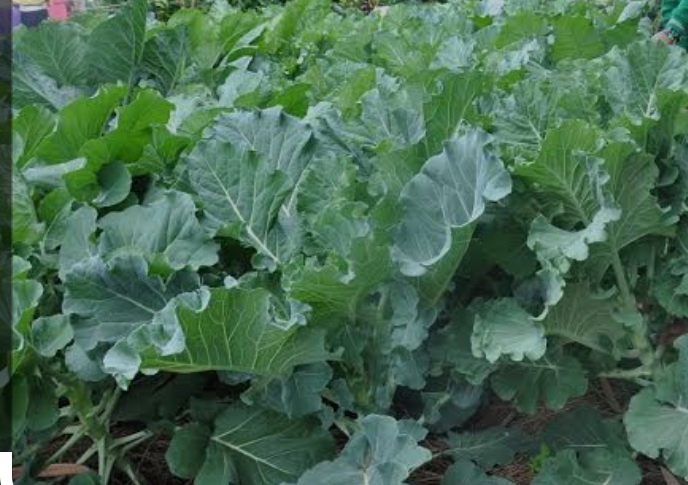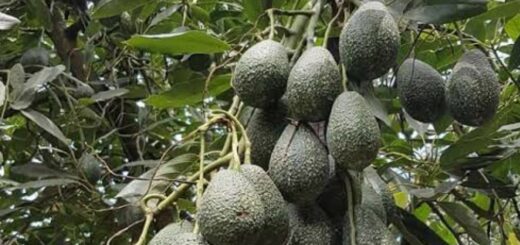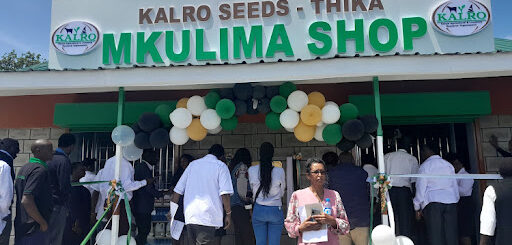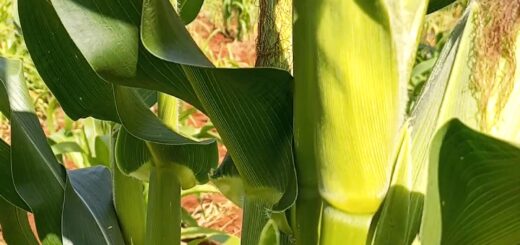The Green Gold Rush: Exploring the Lucrative Realm of Organic Farming
In recent years, organic farming has emerged as a formidable player in the agricultural landscape, transforming from a niche practice into a mainstream, and surprisingly lucrative, venture. This paradigm shift can be attributed to several factors that make organic farming not only an environmentally conscious choice but also a financially rewarding one.
Growing Consumer Demand
With an increasing emphasis on health and sustainability, consumers are actively seeking organic produce. The demand for organic fruits, vegetables, and other products has witnessed a significant uptick as people become more conscientious about the quality and origins of their food. Farmers tapping into this growing market stand to benefit from higher prices and increased sales.
Premium Prices and Certification
Organic produce commands premium prices in the market due to the stringent standards and certification processes involved. Consumers are often willing to pay extra for the assurance that their food is free from harmful pesticides and synthetic additives. Obtaining organic certification opens doors to lucrative markets and enhances the perceived value of the produce.
Environmental Stewardship
As the world grapples with environmental challenges, organic farming is gaining traction for its sustainable and eco-friendly practices. Consumers are willing to support agriculture that minimizes the use of synthetic chemicals, promotes biodiversity, and focuses on soil health. This aligns with the ethos of responsible farming and can attract environmentally conscious consumers.
Government Support and Incentives
Many governments around the world are encouraging organic farming through financial incentives, subsidies, and support programs. These initiatives aim to promote sustainable agricultural practices, reduce the environmental impact of farming, and contribute to rural development. Farmers engaging in organic methods can leverage these support systems to enhance their profitability.
Global Market Opportunities
The demand for organic products is not confined to local markets. With the globalization of trade, organic farmers can tap into international markets seeking high-quality, organic produce. Expanding market reach beyond borders provides opportunities for increased sales and revenue.
Resilience to Market Fluctuations
Organic farming can offer a level of resilience to market fluctuations. While conventional agriculture may be susceptible to price volatility and external factors like pesticide costs, organic farming, with its focus on natural methods, may experience more stability in terms of input costs.
Health and Wellness Trends
The increasing awareness of the link between diet and health has fueled the popularity of organic products. As people become more health-conscious, they are willing to invest in food choices that align with their wellness goals. This trend has created a robust market for organic produce and products.
Implementing successful organic farming practices involves a holistic approach that prioritizes soil health, biodiversity, and sustainable cultivation methods. Here are some examples of how farmers can execute organic farming:
Crop Rotation
Farmers can practice crop rotation by alternating the types of crops grown in a particular field each season. This helps prevent the buildup of pests and diseases specific to certain crops, reduces the need for chemical inputs, and enhances soil fertility.
Composting and Organic Amendments
Utilizing compost and organic amendments is crucial for maintaining soil fertility in organic farming. Farmers can create compost from farm waste, such as crop residues and animal manure, to provide essential nutrients to the soil naturally.
Cover Cropping
Planting cover crops during off-seasons or in between cash crops helps prevent soil erosion, suppress weeds, and improve soil structure. Leguminous cover crops, like clover, also contribute nitrogen to the soil through a natural process called nitrogen fixation.
Natural Pest Control
Implementing biological pest control methods, such as introducing beneficial insects or using companion planting techniques, helps manage pest populations without resorting to synthetic pesticides. For example, planting marigolds can deter nematodes, while ladybugs prey on aphids.
Polyculture and Agroforestry
Instead of monoculture, where a single crop is cultivated, farmers can adopt polyculture by growing a variety of crops together. Agroforestry combines trees and shrubs with traditional crops, promoting biodiversity and enhancing ecological balance.
Integrated Weed Management
Organic farmers can control weeds through non-chemical methods, such as mulching, hand weeding, and using flame weeders. Mulching with organic materials like straw or wood chips helps suppress weed growth and conserves soil moisture.
Water Conservation Techniques
Efficient water management is essential in organic farming. Practices such as drip irrigation, rainwater harvesting, and maintaining soil organic matter can improve water retention in the soil, reducing the need for excessive irrigation.
Non-GMO and Heirloom Varieties
Opting for non-genetically modified organisms (GMOs) and heirloom varieties aligns with organic principles. These varieties are often better adapted to local conditions, contribute to genetic diversity, and can be saved for future seasons.
Livestock Integration
Integrating livestock into farming systems can enhance nutrient cycling. Animals, such as chickens or goats, can be rotated through fields to naturally fertilize the soil with their manure, contributing to a more sustainable and integrated farming approach.
Adopting Technology Mindfully
While organic farming emphasizes natural processes, farmers can still leverage technology for monitoring and precision agriculture. This includes using sensors to assess soil health, satellite imagery for crop monitoring, and other tools that enhance efficiency without compromising organic principles.
Here are some commonly grown organic crops:
Organic Vegetables
- Tomatoes: Grown organically, tomatoes are rich in flavor and nutrients.
- Carrots: Organic carrots are sweet and free from chemical residues.
- Spinach: This leafy green is a popular organic choice, packed with vitamins and minerals.
- Bell Peppers: Colorful and vibrant bell peppers are commonly grown organically.

Organic Fruits
- Apples: Organic apples are free from synthetic pesticides, and their skins are often consumed.
- Berries (Strawberries, Blueberries, etc.): These fruits are often grown organically due to their susceptibility to pesticides.
- Citrus Fruits (Oranges, Lemons, etc.): Organic citrus fruits are known for their juicy and flavorful characteristics.
Organic Grains
- Quinoa: This ancient grain is often grown organically, providing a protein-rich alternative.
- Oats: Organic oats are a staple in many organic diets, used for oatmeal and other products.
- Brown Rice: Grown without synthetic chemicals, organic brown rice is a popular choice.
Organic Legumes
- Lentils: Organic lentils are a nutritious source of protein, fiber, and various minerals.
- Chickpeas: Organically grown chickpeas are used in diverse dishes like hummus and salads.
- Black Beans: A staple in many cuisines, organic black beans are grown without synthetic inputs.
Organic Herbs
- Basil: Organic basil is widely used in culinary applications and is grown without synthetic pesticides.
- Cilantro: Grown organically, cilantro is a flavorful herb used in various cuisines.
- Thyme: This aromatic herb is often cultivated organically for culinary and medicinal purposes.
Organic Tubers
- Potatoes: Organic potatoes are grown without synthetic chemicals, and their skins are often consumed.
- Sweet Potatoes: These are a nutritious and organic alternative to regular potatoes.
Organic Coffee and Tea
- Coffee Beans: Organic coffee is grown without synthetic pesticides, providing a sustainable and environmentally friendly option.
- Tea Leaves: Organic tea is cultivated without synthetic chemicals, offering a clean and flavorful beverage.
By integrating these organic farming practices, farmers can not only meet the standards for organic certification but also promote a regenerative and sustainable agricultural system that benefits both the environment and the farm’s economic viability. The convergence of consumer preferences, environmental consciousness, government support, and global market dynamics has transformed organic farming into a lucrative venture. As the world continues to prioritize sustainability and healthy living, organic farmers find themselves at the forefront of a green revolution that not only benefits the planet but also their bottom line.



